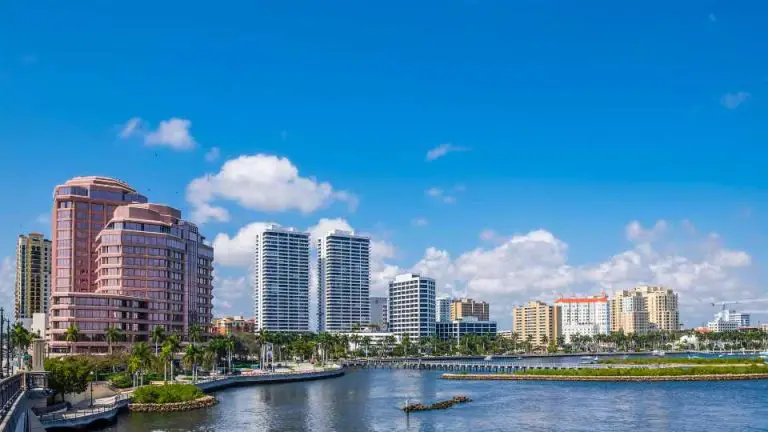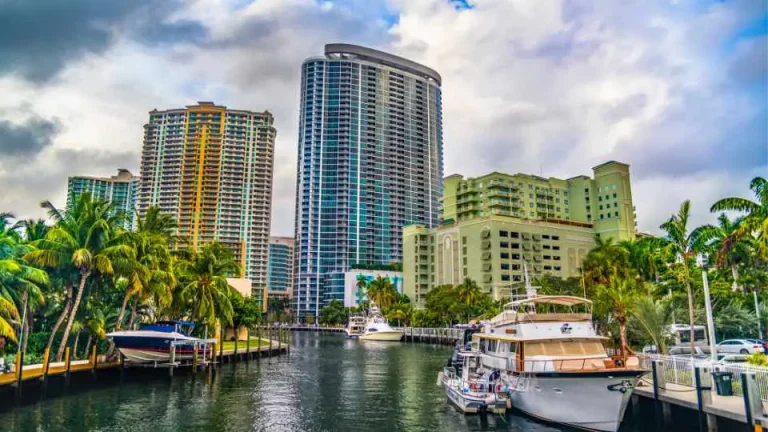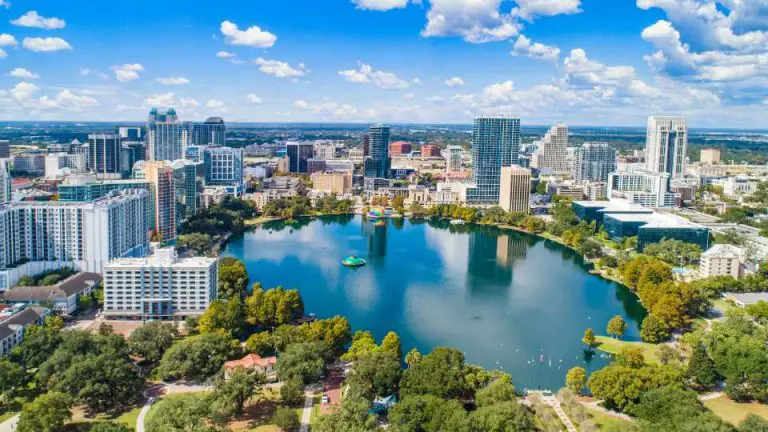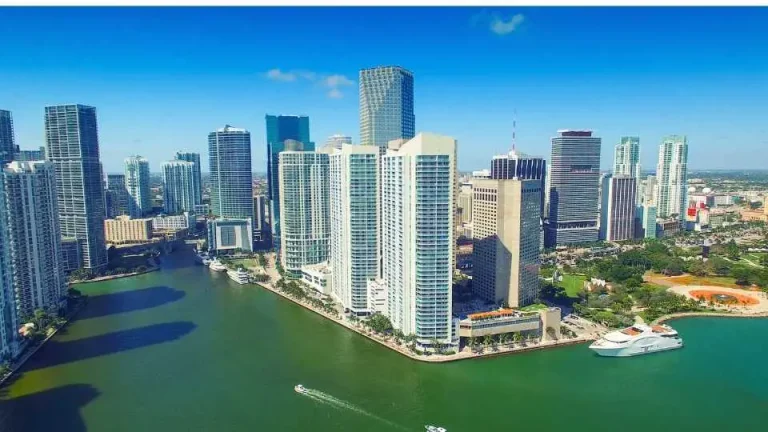Best Places to Live in Florida: Your Ultimate Guide
Florida has long been a desirable destination for a variety of people, ranging from retirees to young professionals seeking sun, sand, and economic opportunity. With its extensive coastline, diverse cities, and an array of cultural attractions, the Sunshine State offers numerous locales that claim the title of best places to live. Potential residents consider factors like the cost of living, employment prospects, quality of education, and community culture when choosing their new home in Florida.
Determining where to live in the state depends greatly on one’s lifestyle preferences and personal circumstances. While some may prioritize urban environments with their vibrant economies and cultural amenities, others might prefer the tranquility of a coastal retreat or the charm of a close-knit suburban community. Yet, despite these differences, the best places in Florida consistently boast a combination of favorable weather, appealing residential areas, and access to natural attractions.
Evaluating Florida’s Top Locations
When assessing the most desirable places to live in Florida, methodology plays a critical role. Analysts consider various metrics, including affordability, cost of living, employment prospects, the unemployment rate, crime rate, overall safety, and access to health care. These elements collectively shape a region’s livability.
Florida’s cost of living and affordability are attractive in many areas, with some locations boasting a reasonable median monthly rent and a cost profile suitable for diverse budgets. Sarasota, for instance, has garnered attention for its family-friendly atmosphere and considerable local workforce.
The employment opportunities in regions such as Cape Coral are growing, marking it as a favorable spot for job seekers. However, it’s noted for higher-than-average housing costs, which could affect overall affordability.
Safety is a priority when determining the best places to reside. Cities are evaluated on their crime rate, with safer areas often ascending in the rankings. Melbourne, for example, stands out not just for its employment rate but also for its safety, complementing its high school students’ achievements.
Access to health care is also paramount, with the best places offering robust health services to residents. In strategy development, the blend of adequate medical facilities, and preventive health measures, weigh significantly.
Unemployment rates are examined closely to gauge economic stability and job market health. Areas with lower unemployment signify a thriving, active local economy, potentially yielding higher ranking positions in livability surveys.
Florida’s allure encompasses its vast coastlines, cultural richness, and growth-oriented cities. The synthesis of quantifiable data with qualitative perks, such as community spirit or natural beauty, provides a well-rounded understanding of the ideal places to live in the Sunshine State.

Economic and Employment Landscape
Florida’s employment landscape is marked by diverse job opportunities and a varying cost of living across the state. Factors such as the unemployment rate, median home price, and rent play a significant role in determining the economic viability of Florida cities.
Job Market Dynamics
Employment in Florida continues to grow, with sectors like technology, tourism, and agriculture driving the economy. Cities like Tallahassee are becoming hubs for tech jobs, thanks in part to initiatives like the Innovation Park of Tallahassee technology incubator. Florida’s unemployment rate often trends lower than the national average, indicating a robust job market.
- Unemployment Rate: As of the latest reports, the unemployment rate in areas like Gainesville is lower than the state’s average, hinting at a strong local economy bolstered by educational institutions and health sector jobs.
Cost of Living Comparison
When considering the cost of living in Florida, one must weigh the median home prices and rental costs against the average income. These expenses can vary widely from city to city.
- Rent and Housing: Coastal cities often come with higher median home prices and rent, while inland cities may offer more affordable living options.
- Median Home Price: Coastal areas like Sarasota and Naples have higher median home prices reflecting their desirability and touristic appeal.
- Rent: Similarly, rent in popular cities tends to be higher, which should be factored into any cost of living comparison.
Cost of living in Florida also encompasses aspects like utilities, transportation, and groceries, each varying between locales and key metropolitan areas.
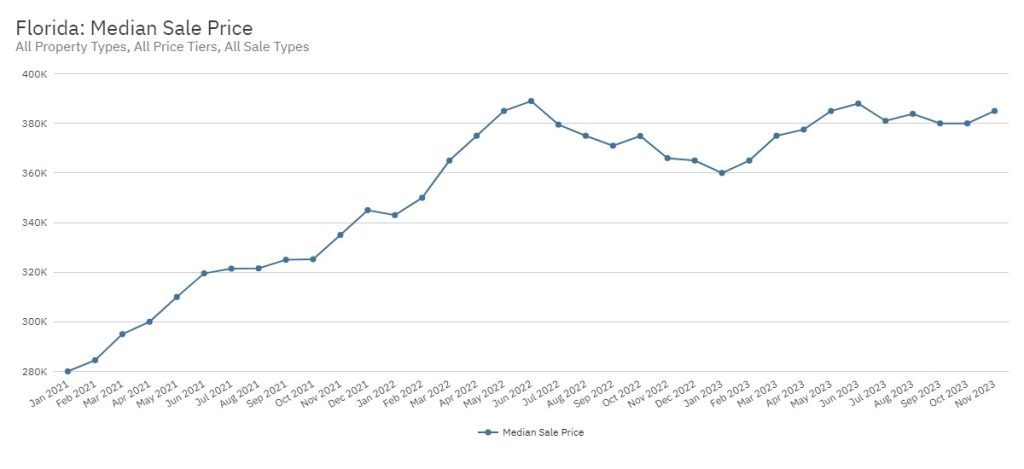
Lifestyle and Culture
Florida offers an enviable lifestyle, marked by a thriving cultural scene, diverse attractions, and a climate that allows for year-round outdoor activities. The state’s mild winters and expansive beaches cater to both relaxation and adventure seekers.
Local Attractions
Beaches: Florida’s coastline is dotted with numerous beaches, each offering its own unique charm. From the family-friendly shores of Sarasota to the vibrant atmosphere of Miami Beach, the state provides a beach for every type of visitor.
Theme Parks: Florida is renowned for its world-class theme parks, such as Walt Disney World and the Universal Orlando Resort, which draw millions of visitors annually. These attractions are not just for families; they also host a variety of festivals and events that cater to a broad audience.
Outdoor Activities: The state’s diverse landscape allows for numerous outdoor activities, including hiking in the Everglades, golfing on premier courses, and boating along the Intracoastal Waterway. The consistent sunny weather makes Florida an ideal destination for year-round outdoor pursuits.
Cultural Diversity and Arts
Diversity: Florida’s cultural diversity is a cornerstone of its rich social fabric. The state boasts a melting pot of cultures, with strong Hispanic and Caribbean influences, which are reflected in the local cuisine, festivals, and daily life.
Arts: The cultural scene in Florida is vibrant and robust, featuring renowned art galleries, museums, and performing arts venues, like the Adrienne Arsht Center in Miami. Cities such as St. Petersburg are known for their dedicated Arts Districts, accentuating the state’s commitment to nurturing the arts.
Nightlife: The nightlife in Florida caters to a variety of tastes, ranging from the high-energy nightclubs of Miami to the more laid-back live music venues in smaller towns. Visitors and residents alike can enjoy an evening tailored to their preferences, whether they’re looking for dancing or a quiet seaside dinner.

Urban Centers vs Coastal Retreats
Florida offers a diverse range of living experiences, from the bustling urban centers of Tampa, Miami, and Orlando to the serene coastal retreats alongside the Atlantic Ocean and Gulf of Mexico.
City Living
Urban communities in Florida present a vibrant lifestyle with ample opportunities for employment, culture, and entertainment. Tampa is known for its growing economy and cultural diversity, with a mix of modern business districts and historic neighborhoods. Meanwhile, Miami stands as a bustling international city with a strong Latin influence, providing a cosmopolitan atmosphere combined with white-sand beaches. Orlando is famed for its world-class theme parks and entertainment options, making it an ideal location for families and individuals seeking a dynamic urban environment.
Coastal Benefits
On the flip side, Florida’s coastal areas provide residents with a peaceful retreat from urban life. The state’s beaches are renowned for their beauty, offering a mix of lively resorts and quiet stretches of sand. Living near the ocean allows for activities such as boating, fishing, and water sports, particularly along the Gulf Coast with its calmer waters and breathtaking sunsets. Regions like South Florida provide access to both the Gulf of Mexico and the Atlantic Ocean, satisfying those who desire the tranquility of coastal living without sacrificing convenience.

Retirement Havens
Florida continues to be a prime destination for retirees seeking comfortable climates, active communities, and a high quality of life. The state offers abundant choices for those in their golden years, from picturesque beach towns to communities rich with cultural activities.
Retiree-Focused Communities
The Villages stands out for its expansive offerings tailored to retirees. It’s not just a community; it’s a self-sustained town designed for the retiree lifestyle, with recreation, entertainment, and health care facilities on site. Similarly, cities like Sarasota and Naples are acclaimed for their retiree-friendly amenities, including vibrant arts scenes and picturesque beaches. These communities are not only social hubs but are also designed to be accommodating and accessible for retirees.
Cost and Quality of Living for Retirees
Regarding affordability, places such as Port St. Lucie and Jacksonville strike a balance between cost and quality of life. Cost of living is a critical factor, with median home values and rents being important metrics for retirees to consider:
- Port St. Lucie
- Median Home Value: Around $292,000
- Median Rent: Approximately $1,200
- Jacksonville
- Median Home Value: $293,901
- Median Rent: $1,631
Both cities offer a cost of living near the national average, tax-friendly policies for retirees, and maintain high standards for health care services and safety, making them attractive for those who seek a comfortable and secure retirement.

Family-Friendly Locales
When evaluating the best places to live in Florida for families, one must consider education, recreation, and community engagement. These factors play crucial roles in ensuring a high-quality life for parents and children alike.
Education and Schools
In terms of education, Florida boasts several locations with top-notch school systems that cater to young families and millennials seeking the best learning opportunities for their children. Sarasota stands out with its commitment to quality education, offering a range of public and private school options with strong academic programs. Palm Bay also offers a family-friendly atmosphere with schools that prioritize academic excellence and innovation.
Recreation and Community
For recreation and community, cities like Daytona Beach offer a vibrant community with plenty of family-oriented activities and outdoor spaces. One finds a balance between leisure and educational pursuits in Daytona Beach, with its numerous parks and cultural events that young families and millennials often seek. Additionally, Sarasota provides a robust community feel with numerous parks, beaches, and family events that encourage community engagement and an active lifestyle.
In these locales, families can expect to find a supportive environment that fosters both educational growth and community ties.

Natural Attractions and Weather
Florida’s landscape offers a diverse range of natural attractions, complemented by a subtropical climate that allows year-round outdoor activities. However, potential residents should also be aware of weather nuances, including hurricane season.
Embracing Florida’s Outdoors
Florida boasts an extensive array of natural wonders. Notably, the Everglades—a unique ecosystem that’s a haven for wildlife and outdoor enthusiasts. For beach lovers, Florida’s coastline features some of the nation’s most visited beaches, such as those along the Gulf of Mexico, known for their calm, warm waters and soft sand. Outdoor activities extend from snorkeling in crystal-clear springs to hiking and bird watching.
- Beaches: Over 1,350 miles of coastal shorelines
- Outdoor Activities: Hiking, snorkeling, fishing, boating
Weather Considerations
Florida experiences a humid subtropical climate, characterized by hot summers and mild winters. The state is known for its temperate days throughout the year, which contributes to its appeal as a top destination for both living and vacationing. However, Florida is also prone to hurricanes between June and November, necessitating proper preparations and awareness.
- Hot Summers: Average high temperatures hover in the low to mid-90s.
- Mild Winters: Average low temperatures rarely drop below the high 40s to mid-50s.
- Hurricane Season: June 1 to November 30, with peak activity typically in August and September.
Florida’s weather and natural attractions are central to what makes it such an appealing place to live, offering a lifestyle that is both relaxed and vibrant amidst the backdrop of undeniable natural beauty.
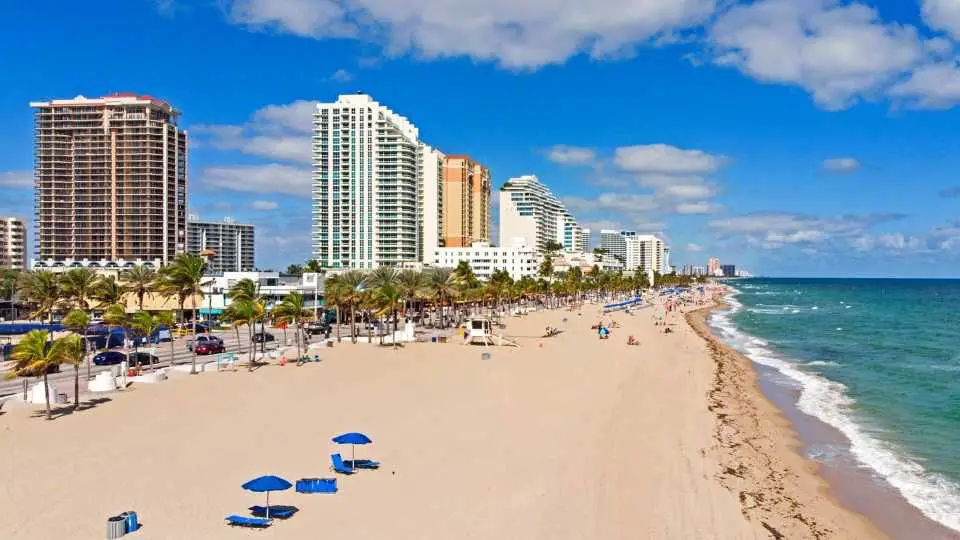
Conclusion
The attractiveness of Florida as a residential destination is influenced by several factors. The state’s climate is a significant draw, with warm weather year-round and ample sunshine. This favorable weather facilitates a range of outdoor activities, contributing to the high quality of life experienced by residents.
Communities across Florida offer diverse living experiences. Families may prioritize areas with strong educational systems and family-friendly amenities. Retirees and others may prefer communities that are peaceful and offer leisure activities geared toward their preferences.
Florida’s extensive coastline provides not only picturesque views but also access to a plethora of beachside communities. These locales are sought after for their relaxed lifestyles and proximity to beaches.
Prospective residents looking to move to Florida should consider their personal needs and preferences. Whether seeking vibrant, urban centers or tranquil, seaside towns, Florida’s multitude of environments ensures a fitting choice for many.
In assessing best places to live, factors such as economic opportunities, cost of living, and community engagement should be gauged. Locations like Sarasota emerge frequently due to their balanced mix of cultural attractions, pleasing climates, and economic growth.
When making the decision to relocate, individuals should also be mindful of Florida’s varying regional characteristics. From the Panhandle’s more temperate conditions to the tropical feel of the southern tip, prospective residents should weigh these aspects carefully to find their ideal setting in Florida.

Are you interested in owning a home in Florida?
If the allure of sun-kissed beaches, vibrant communities, and year-round warmth speaks to your heart, owning a home in Florida might just be your next great adventure!
To help our audience with buying or selling a home in Florida, Endless Summer has affiliated with Quantum Realty Advisors, Inc. (“Quantum”) which is a licensed Florida real estate company that has been in business since 1998. Quantum’s experienced real estate advisors will take the time to discuss exactly what your are looking for in a home as well your what will fit into you budget.
When you are ready to begin, they will be with you every step of the way. Click here to contact the team at Quantum.


